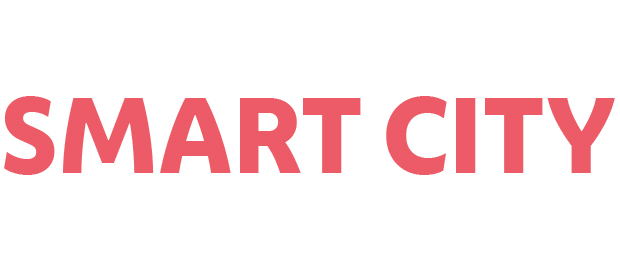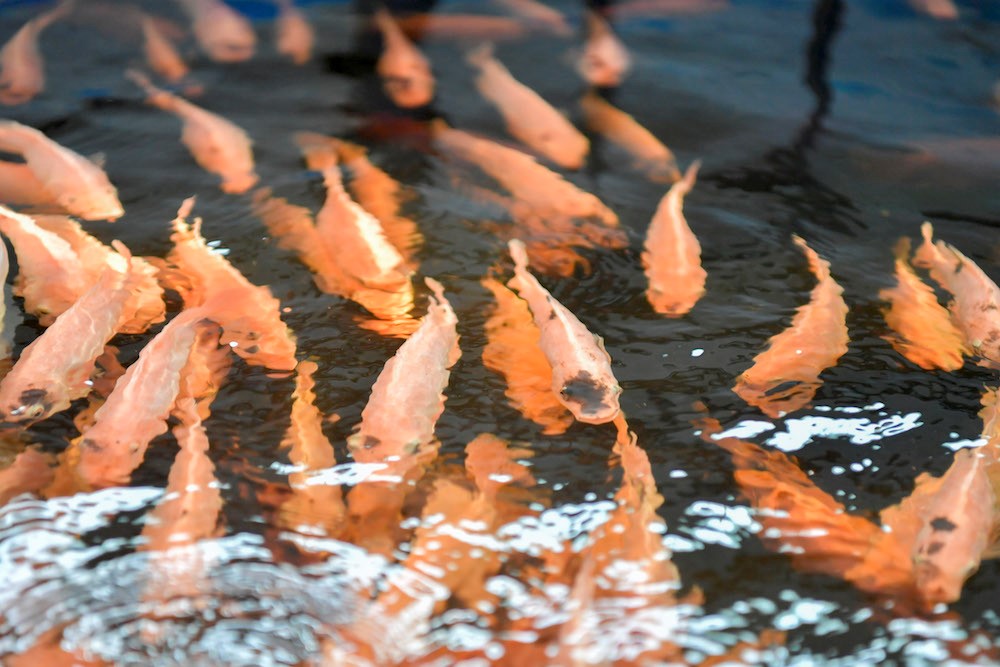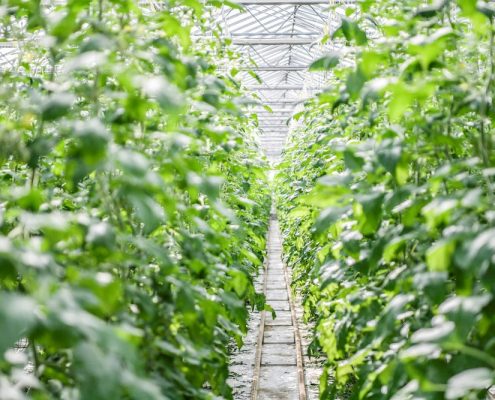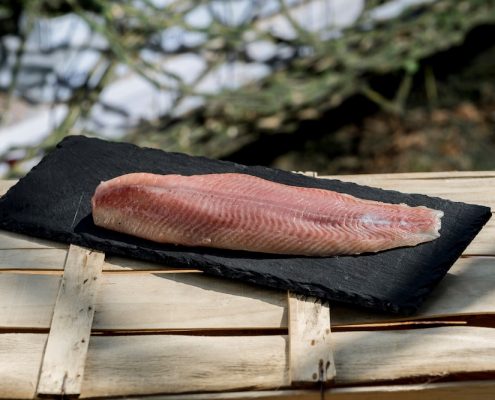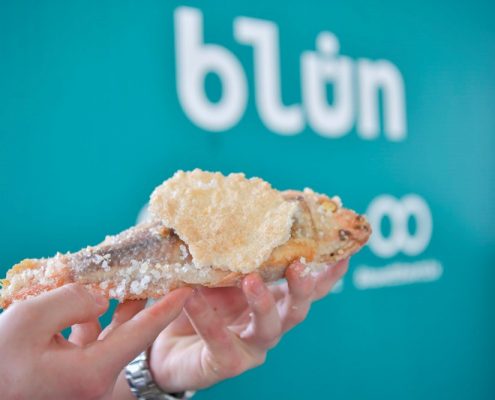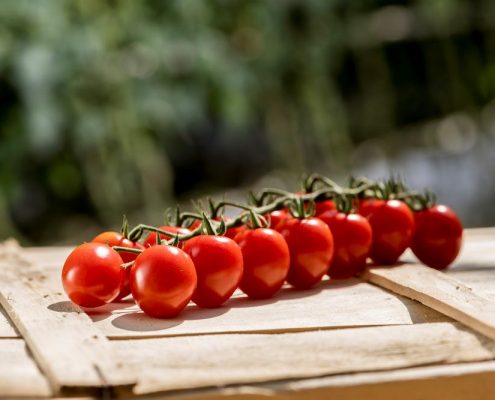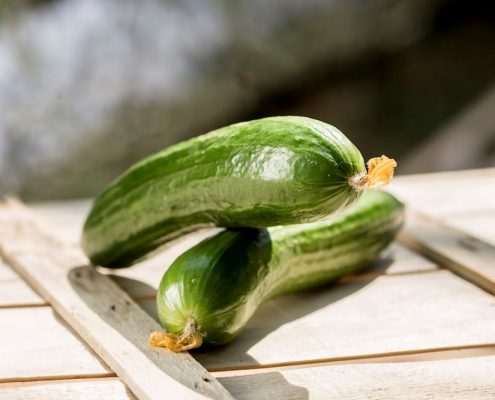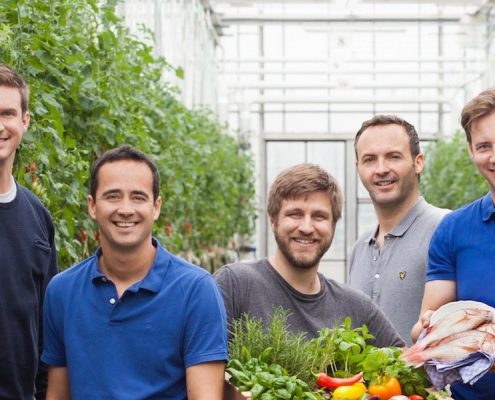Aquaponics as agriculture of the modern future: In a sustainable closed cycle the cultivation of fish in aquaculture is combined with the cultivation of vegetables in hydroponic culture. The Viennese company blün committed itself exactly to this method and developed Austria’s first aquaponics facility in the 22nd district of Vienna.
There catfish are bred and a variety of vegetables such as tomatoes, eggplants, cucumbers, peppers and chillies are grown. The urban farming start-up supplies citizens, renowned restaurants and cafés as well as selected trading partners with local fish and vegetables. Currently, about 12 tons of the resource conserving “Viennese fish” is sold every year.
What is aquaponics?
Aquaponics is a sustainable technology that combines the breeding of fish in aquaculture with the cultivation of crops in hydroponic culture. By combining the two production cycles resources are used efficiently. In total, 10% of the fish water is pumped out daily and fresh spring water is added at the same time. The waste water from the fish – filtered from solids and naturally enriched with valuable nitrogen – goes into the cycle in order to be used for irrigation and fertilisation of the plants in the greenhouse. Due to the nutrients contained in the wastewater, there is no need to use herbicides and fungicides within the cultivation of plants. With the waste heat from the greenhouse, the fish tanks are constantly heated to a water temperature of 25 degrees. This results in an uncompromising ecological-economic production method according to the principle of a circular economy. A modern circular economy does not have to be soil based. Soil-bound also means tolerating nitrogen losses – be it as ammonia loss or through nitrate leaching.
blün is a closed water and nutrient cycle. Apart from Viennese water and high-quality, certified, GMO-free fish food, nothing enters the resource cycle. The fish food is consumed by the fish. Filters and bio-filters recycle the fish manure into nitrogen compounds that are valuable for plants. Through the water cycle, these components then reach the plants. Since the bio-filter – biologically speaking – is the same microorganism for nitrification as in the soil, no drugs, chemicals or antibiotics can be used; otherwise the basis of the cycle would be destroyed. The plants are fertilised and watered with the fish water. In the greenhouse, the team works with bumble bees and beneficial insects (such as ichneumon wasps and mites). Therefore, any substances that would harm the “helpers” are taboo. The plants are planted on coconut substrate, which is 100% composted after the harvest cycle.
Local, transparent & eco-effective
In its daily activities and actions, the company follows three basic principles: local, transparent and eco-effective. blün produces for the city in the city. Other customers are not excluded, however the go-to customers are those in the city. The manufacturing process is transparent and blün gladly shows how it works, because there is nothing to hide. This is proven by several guided tours through the production facilities every week. In addition the work is eco-effective. Technical and biological cycles overlap and complement each other. In other words: each product is in some form part of another one.
Gastronomy values quality of Viennese fish
The aquaponics system currently produces 12 tonnes of fish and 10 tonnes of vegetables per year in a resource-conserving manner. In addition to countless private customers, renowned restaurants are among the customers. These include, for example, Palais Coburg, Labstelle, the restaurant at Donauturm, Herbeck and Heuer at Karlsplatz. Apart from that, the fish and vegetables are available in the in-house farm shop, the web shop and selected regional trade partners.
Facts
- Austria’s first commercial aquaponics system
- resource-saving production: aquaponics combines fish farming and vegetable production in an eco-effective cycle
- low CO2 footprint: 1 kg of Viennese fish only accounts for just under 3 kg of CO2 before final consumption (compare 1 kg of beef approx. 26 kg of CO2)
- “transparent production”: all products are fully traceable
- locally farmed fish: diversification of the range of high-quality fish from Austria.
- blün bears the quality seal “Gutes vom Bauernhof” of the Austrian Chamber of Agriculture
Contact
E-Mail: info@bluen.at
Website: www.bluen.at (in German)
This post is also available in: German

